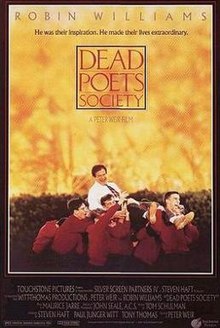
Robert James Lee Hawke was an Australian politician and trade unionist who served as the 23rd prime minister of Australia from 1983 to 1991. He held office as the leader of the Australian Labor Party (ALP), having previously served as the president of the Australian Council of Trade Unions from 1969 to 1980 and president of the Labor Party national executive from 1973 to 1978.
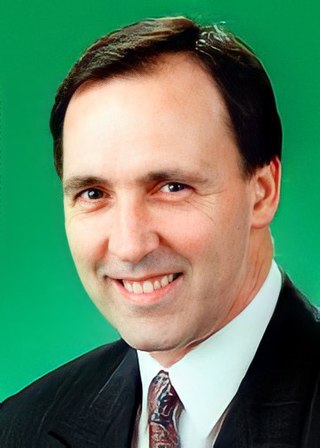
Paul John Keating is an Australian former politician who served as the 24th prime minister of Australia from 1991 to 1996, holding office as the leader of the Australian Labor Party (ALP). He previously served as the treasurer of Australia under Prime Minister Bob Hawke from 1983 to 1991 and as the seventh deputy prime minister of Australia from 1990 to 1991.

Peter Lindsay Weir is an Australian retired film director. He is known for directing films crossing various genres over forty years with films such as Picnic at Hanging Rock (1975), Gallipoli (1981), The Year of Living Dangerously (1982), Witness (1985), Dead Poets Society (1989), Fearless (1993), The Truman Show (1998), Master and Commander: The Far Side of the World (2003), and The Way Back (2010). He has received six Academy Award nominations, ultimately being awarded the Academy Honorary Award in 2022 for his lifetime achievement career.
Joseph Neil Schulman was an American novelist who wrote Alongside Night and The Rainbow Cadenza which both received the Prometheus Award, a libertarian science fiction award. His third novel, Escape from Heaven, was also a finalist for the 2002 Prometheus Award. His fourth and last novel, The Fractal Man, was a finalist for the 2019 Prometheus Award.
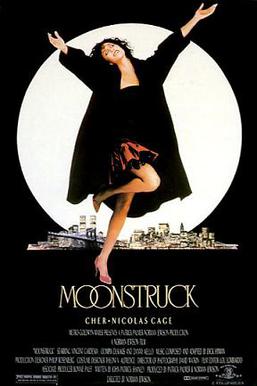
Moonstruck is a 1987 American romantic comedy film directed by Norman Jewison and written by John Patrick Shanley. It stars Cher as a widowed Italian American woman who falls in love with her fiancé's hot-tempered, estranged younger brother, played by Nicolas Cage. The supporting cast includes Danny Aiello, Olympia Dukakis and Vincent Gardenia.

Ethan Green Hawke is an American actor, author and film director. He made his film debut in Explorers (1985), before making a breakthrough performance in Dead Poets Society (1989). Hawke starred alongside Julie Delpy in Richard Linklater's Before trilogy from 1995 to 2013. Hawke received two nominations for the Academy Award for Best Supporting Actor for Training Day (2001) and Boyhood (2014) and two for Best Adapted Screenplay for co-writing Before Sunset (2004) and Before Midnight (2013). Other notable roles include in Reality Bites (1994), Gattaca (1997), Great Expectations (1998), Before the Devil Knows You're Dead (2007), Maggie's Plan (2015), First Reformed (2017), The Black Phone (2021) and The Northman (2022).
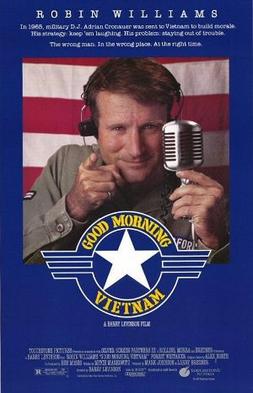
Good Morning, Vietnam is a 1987 American war comedy film written by Mitch Markowitz and directed by Barry Levinson. Set in Saigon in 1965, during the Vietnam War, the film stars Robin Williams as an Armed Forces Radio Service DJ who proves hugely popular with the troops, but infuriates his superiors with what they call his "irreverent tendency". The story is loosely based on the experiences of AFRS DJ, Adrian Cronauer.

Sir Christopher Edward Nolan is a British and American filmmaker. Known for his Hollywood blockbusters with complex storytelling, he is considered a leading filmmaker of the 21st century. Nolan's films have earned over $6 billion worldwide, making him the seventh-highest-grossing film director of all time. His accolades include two Academy Awards and two British Academy Film Awards. Nolan was appointed as a Commander of the Order of the British Empire in 2019, and received a knighthood in 2024 for his contributions to film.
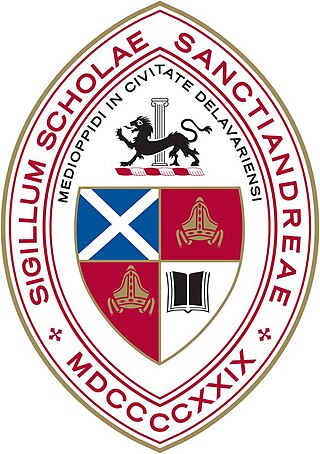
St. Andrew's is a private, Episcopal, co-educational 100% boarding school in New Castle County, Delaware, with a Middletown postal address. It is one of only three co-ed college preparatory schools in the United States where all students board. St. Andrew's has 318 students, and is highly selective, accepting 18% for the 2021–2022 school year. Despite its relatively small student body, it has one of the largest secondary school campuses in the United States, spanning 2,200 acres. St. Andrew's offers 130 courses each year in 10 disciplines.
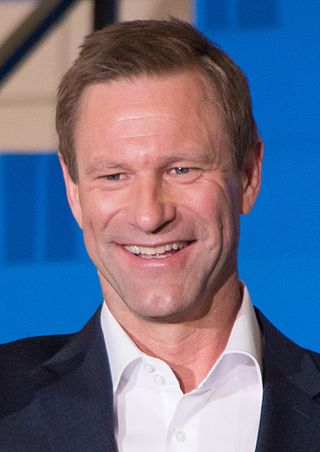
Aaron Edward Eckhart is an American actor. Born in Cupertino, California, Eckhart moved to the United Kingdom at an early age. He began his acting career by performing in school plays, before moving to Australia for his high school senior year. He left high school without graduating, but earned a diploma through a professional education course, and then graduated from Brigham Young University (BYU) in Utah, U.S., in 1994 with a Bachelor of Fine Arts degree in film.

Joshua Aaron Charles is an American film, television, and theater actor. He is best known for the roles of Dan Rydell on Sports Night, Will Gardner on The Good Wife, which earned him two Primetime Emmy Award nominations, and his early work as Knox Overstreet in Dead Poets Society and Bryan from Don't Tell Mom the Babysitter's Dead.

Robert Lawrence Leonard, known by his stage name Robert Sean Leonard, is an American actor. He is known for playing Dr. James Wilson in the television series House (2004–2012) and Neil Perry in the 1989 film Dead Poets Society.
Thomas H. Schulman is an American screenwriter best known for his semi-autobiographical screenplay Dead Poets Society, which won the Academy Award for Best Original Screenplay in 1989.
Lee Smith, ACE, is an Australian film editor who has worked in the film industry since the 1980s. He began his film career as a sound editor before establishing himself as an editor. His breakthrough came when he began collaborating with director Peter Weir. Smith is best known for his work on several of Christopher Nolan's films, including Batman Begins (2005), The Dark Knight (2008), Inception (2010), The Dark Knight Rises (2012), Interstellar (2014) and Dunkirk (2017), for which he won the Academy Award for Best Film Editing.

Norman Nathan Lloyd was an American actor, producer, director, and centenarian with a career in entertainment spanning nearly a century. He worked in every major facet of the industry, including theatre, radio, television, and film, with a career that started in 1923. Lloyd's final film, Trainwreck, was released in 2015, after he turned 100. Lloyd remains the longest-lived male actor from Classic Hollywood.
Susan H. Schulman is an American theatre director.
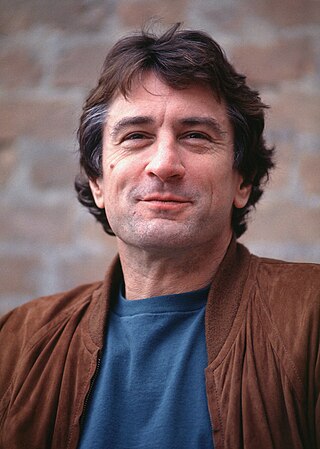
Robert De Niro is an American actor, director and producer. His early films included Greetings (1968), The Wedding Party (1969), Bloody Mama (1970), Hi, Mom! (1970), Jennifer on My Mind (1971), The Gang That Couldn't Shoot Straight (1971), and Mean Streets (1973). In 1974, De Niro was cast as the young Vito Corleone in The Godfather Part II. His performance in the film led him to win the Academy Award for Best Actor in a Supporting Role. After The Godfather Part II, he starred in Martin Scorsese's psychological drama Taxi Driver (1976). In the film, De Niro portrayed Travis Bickle, who is a lonely, depressed 26-year-old living in isolation in New York City. He won the Los Angeles Film Critics Association Award for Best Actor, National Society of Film Critics Award for Best Actor, New York Film Critics Circle Award for Best Actor, and he was nominated for the Academy Award for Best Actor. De Niro's "You talkin' to me?" dialogue was ranked number 10 on the American Film Institute's AFI's 100 Years... 100 Movie Quotes. In 1978, De Niro appeared in Michael Cimino's war drama The Deer Hunter, a film based on a trio of steelworkers whose lives were changed forever after fighting in the Vietnam War. De Niro was nominated for the Academy Award for Best Actor.

Samuel F. "Sam" Pickering Jr. is a writer and professor emeritus of English at the University of Connecticut in Storrs. His unconventional teaching style was an inspiration for the character of Mr. Keating, played by Robin Williams in the film Dead Poets Society. Pickering specializes in the familiar essay, children's literature, nature writers, and 18th and 19th century English literature. Pickering has published many collections of non-fiction personal essays as well as over 200 articles.

Will Smith is an American actor, rapper and film producer. His breakthrough came when he played a fictionalised version of himself in the 1990s television sitcom The Fresh Prince of Bel-Air. The role brought him international recognition and two Golden Globe Award nominations for Best Actor – Television Series Musical or Comedy. He also served as an executive producer on 24 episodes of the series. Two years later, Smith made his film debut in the drama Where the Day Takes You, where he appeared as a disabled homeless man. In 1995, he starred as a police officer with Martin Lawrence in Michael Bay's Bad Boys. The following year, Smith appeared as a Marine Corps pilot with Jeff Goldblum in Roland Emmerich's science fiction film Independence Day. The film grossed over $817 million at the worldwide box office and was the highest grossing of 1996. In 1997, he starred as Agent J in the science fiction film Men in Black, a role he reprised in its sequels Men in Black II (2002) and Men in Black 3 (2012).
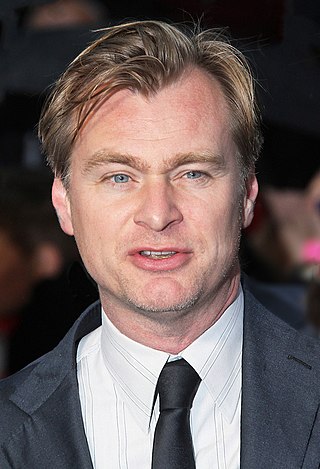
Christopher Nolan is a British-American film director, screenwriter and film producer. His feature directorial debut was the neo-noir crime thriller Following (1998) which was made on a shoestring budget of $6,000. Two years later, he directed the psychological thriller Memento (2000) which starred Guy Pearce as a man suffering from anterograde amnesia searching for his wife's killers. Similar to his debut feature it had a non-linear narrative structure, and was his breakthrough film. It was acclaimed by critics and was a surprise commercial success. For the film Nolan received his first nomination for the Directors Guild of America Award for Outstanding Directing – Feature Film, and for writing its screenplay he was nominated for the Academy Award for Best Original Screenplay. He next directed the mystery thriller remake Insomnia (2002) which starred Al Pacino, Robin Williams, and Hilary Swank. It was his first film for Warner Bros., and was a critical and commercial success.
